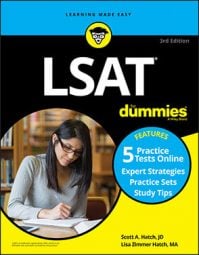Almost as important as strengthening your own arguments is tearing down your opponent’s. The LSAT will test your ability to attack your opponent’s argument. Lawyers spend at least as much time attacking their opponent’s arguments as they do bolstering their own.
No matter how strong your case is, your opponent will have a tough case in response. Even if the opposing case is flimsy as gauze, you still have to go through the necessary steps of taking it apart. That’s why the LSAT tests for this skill.
The logical reasoning section contains several questions asking you to weaken an argument. These questions may use the word weaken. They also may ask you to criticize, undermine, or attack the argument.
Here are some weaken questions:
Which one of the following, if true, most weakens the argument?
Which one of the following, if true, most seriously weakens the argument?
Which one of the following statements, if true, most seriously weakens the argument above?
Which one of the following, if true, most undermines the doctor’s argument?
Which one of the following, if true, most undermines George’s objection to Marisol’s analysis?
The approach to these questions is exactly like the approach to strengthen/support questions, except that you want to hurt the argument, not help it. Find the conclusion, figure out what evidence and reasoning the author used to get there, and come up with something that makes the relevance of that evidence to that conclusion seem less likely.

